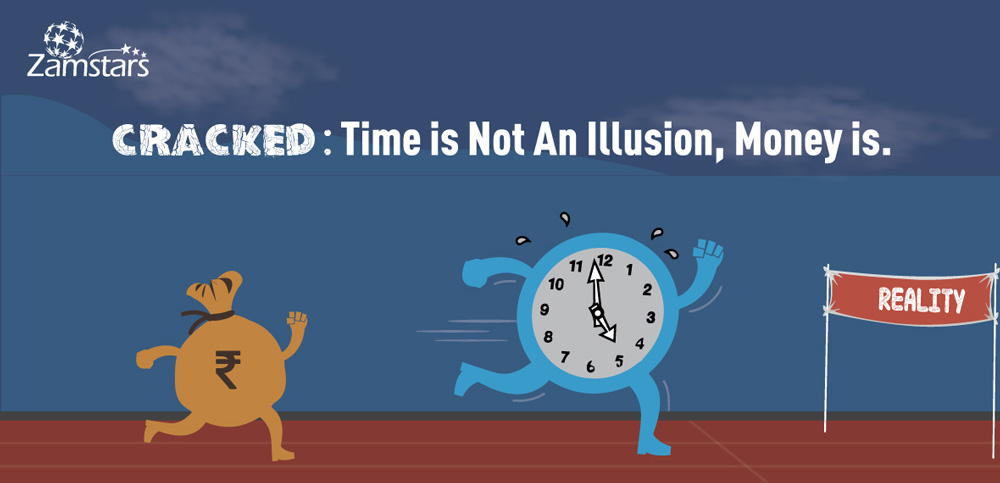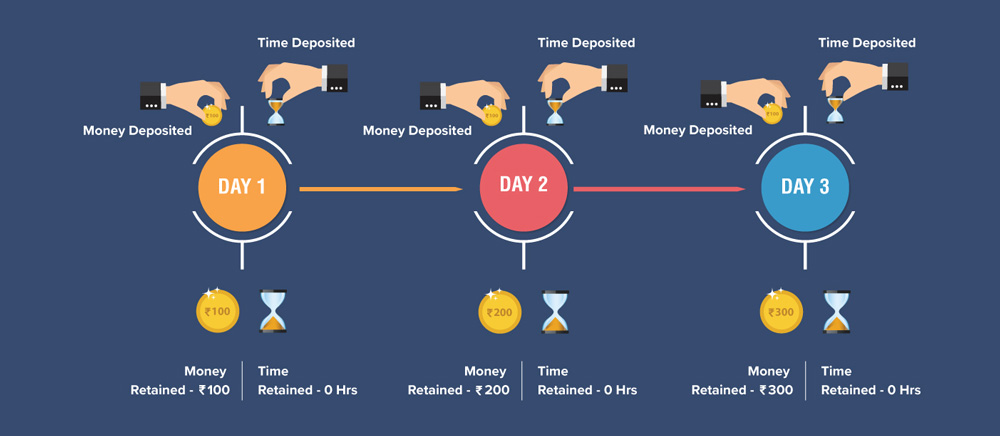
The Stanford marshmallow experiment was aimed at studying the effects of what delayed gratification could have on kids. In this study, a child was awarded three treats, under the condition that they could consume one marshmallow immediately and they were given an option to wait before they could consume the other treats. During which the tester left and returned to the room after 15 minutes. The children who chose to wait the fifteen minutes had successfully encompassed the urge for short-term gratification.
Investment in time can’t be commoditized since it comes along with virtues that can’t be wrapped to a short-term outcome. The kids who were patient enough to wait for the treats later had better life outcomes as measured by their SAT scores, higher educational attainment and experienced an overall well-being in their social measures. These individuals went on to be successful because of the invisible virtues that were coded into them by time, one they weren’t aware of immediately but realised as life unfolded.
“Time is more valuable than money. You can get more money, but cannot get more time.” -Jim Rohn. The significance of this term couldn’t be described enough with words. We often associate ourselves to our bank accounts, contemplating how to earn more, how to invest more and how to spend more. But we fail to give the same treatment to time, everyday twenty-four hours is deposited to our bank account of time. Deciding how much to use right away, how much to invest in the future, and how much to give away is the bank statement that you need to monitor every day.
Time is a perfect equaliser. From Presidents to Cobblers, all of them get the same twenty-four hours a day. Our activities revolve around filling these hours, considering every minute unique. The potential to utilise these hours and achieve something is infinite depending on how one chooses to spend it. With a constant depreciating quantum, time spent once can never be regained back.
Coined by Benjamin Franklin, the term ‘Time is Money’ was a piece of advice given by him to a young tradesman. In his time, a tradesman traded his time for the money he earned. An analogy that most of us believe to be true until this date. But this notion is widely misunderstood, as today we think more about doing the work than working. Technological advancements have revolutionised the way we work. With everything a touch away, we all are ceaselessly thumbing away to several emails even in our ‘leisure time’. In this present technological era, time is time and money is money. A time invested has its virtues, if not an immediate outcome such as money. The essence of time tailor’s attributes into us, much like the achievements of the kids who chose to wait for the second treat. Surpassing money and aiming towards achievements, efforts and productivity define your existence.

Often the quote gets us into trouble. By commoditizing time, we often try to do more in less time. In doing so we confuse ‘activity’ with ‘productivity’ and run the hamster wheel competitively to do more, but fail to add any value. Our relationship with time is negative as we are focused towards the lack of it than looking at its abundance; this leads to the mindset of ‘doing’ is ‘being’.
“I don’t have time to…” is an excuse that we use quite often. But time depreciates progressively, with a well laid out plan and anything could be accomplished. The necessity and importance of time management are crucial to see success, and success does not always mean money. Dealing with distractions effectively or allocating time accordingly, helps to understand time if not master it.
Achievements are defined by time, and not by money. The success of a person, a brand or a venture is defined by the time invested by them. Money is a variable outcome, working with the mindset of ‘time is money’ could yield only the outcome that you’ve defined your time with. Investing time regardless of the monetary outcome or any definition what so ever could result in a venture that is built on hard work and man hours that’s gone behind in mastering the skills and techniques that could fine tune the success.
Investing time in branding is the building block that forms the success of it in later stages. Branding cannot be simply defined as a logo or a website, it’s a research on how every aspect of it is aimed to attain optimum customer experience. From the look and feel of it to the way the executives interact with the customers. Like any good research, the governing element of any good branding initiative is defined by time. Stepping away from the clichéd perspective of ‘Making money first and branding later’, and investing adequate time before establishing a branding campaign, would help in understanding the market scenarios, the customer base, the needs of the customer and how it would lead to customer success. By investing adequate time into branding initiatives, the investment expected out of it could be multiplied tenfold. Much like the interest earned through long-term fixed deposits, the investment of time could yield a higher interest rate that just isn’t just defined by a deposit or money, but also encompass facets such as goodwill, market stability and a loyal customer base. All that achieved just by the virtue of time as an investment.
Not reflecting on one’s own time could be dangerous. It’s easy to take the sideline and talk about how we could’ve done something or contemplating about an idea that others have already executed. But intentions and ideas are not costly. Realising the importance of the investment of time could be the thin line that makes your ambitions a success or may lead it to be just another thought. You don’t have time, time has you!
Sivaram Kuppachi, Quarterback, CEO, Zamstars
Krishna Kumar, Brand Manager, Zamstars
Abishek Chandran, Creative Director , Zamstars